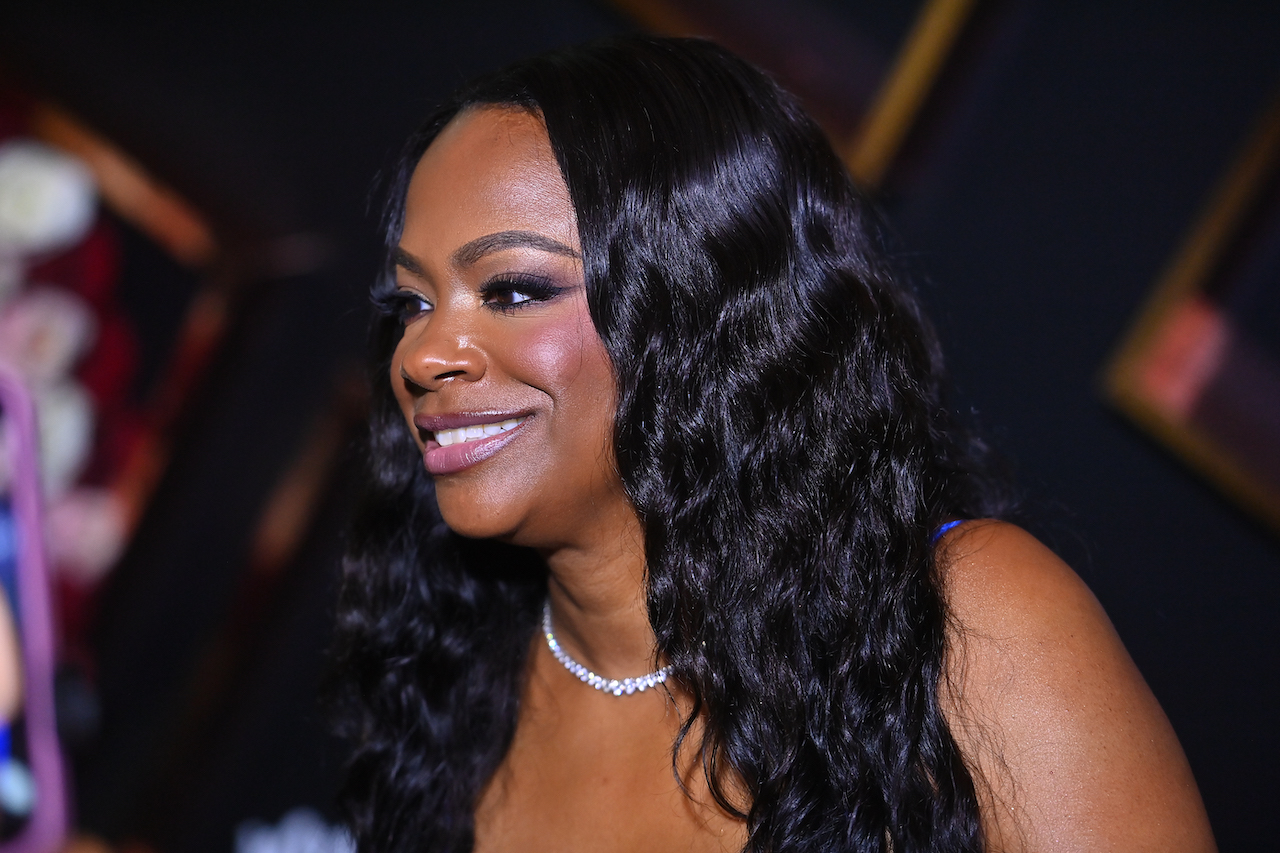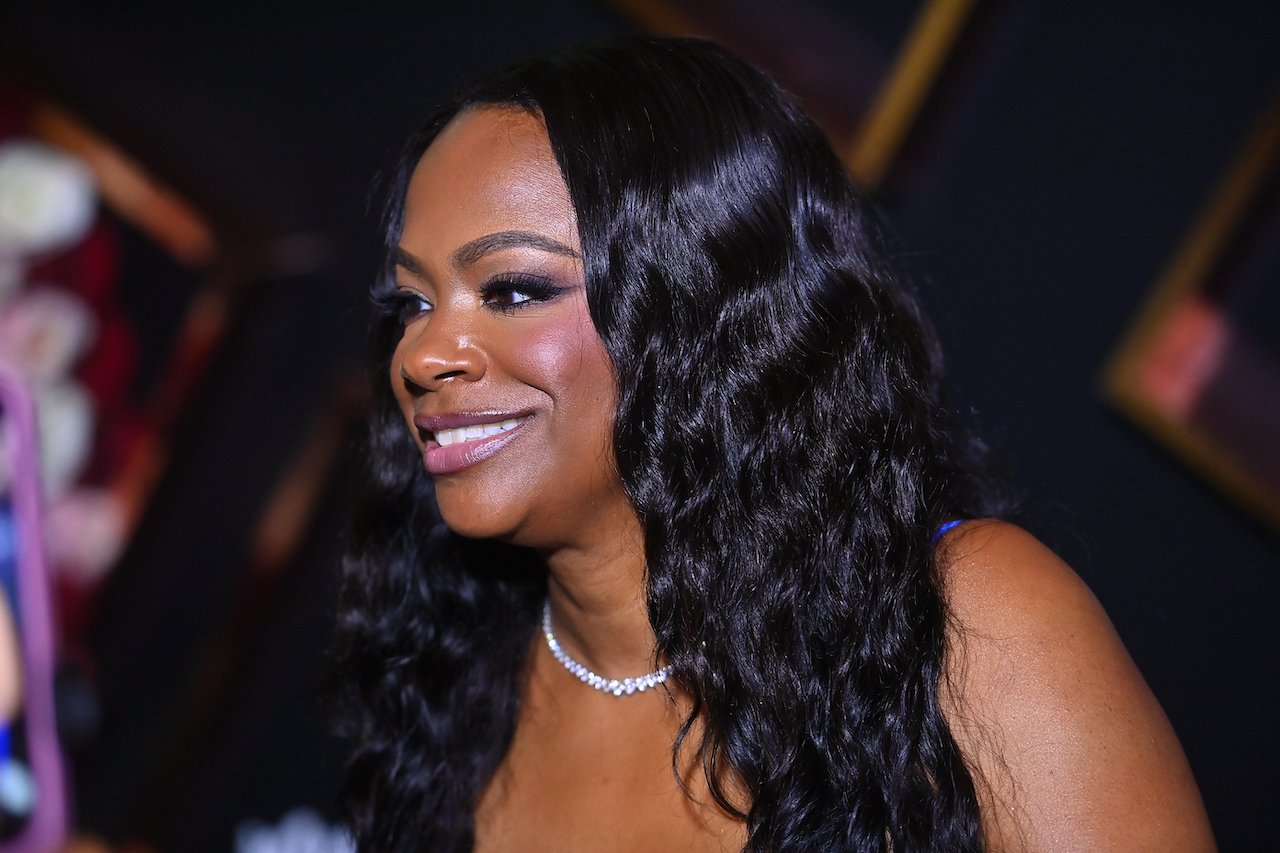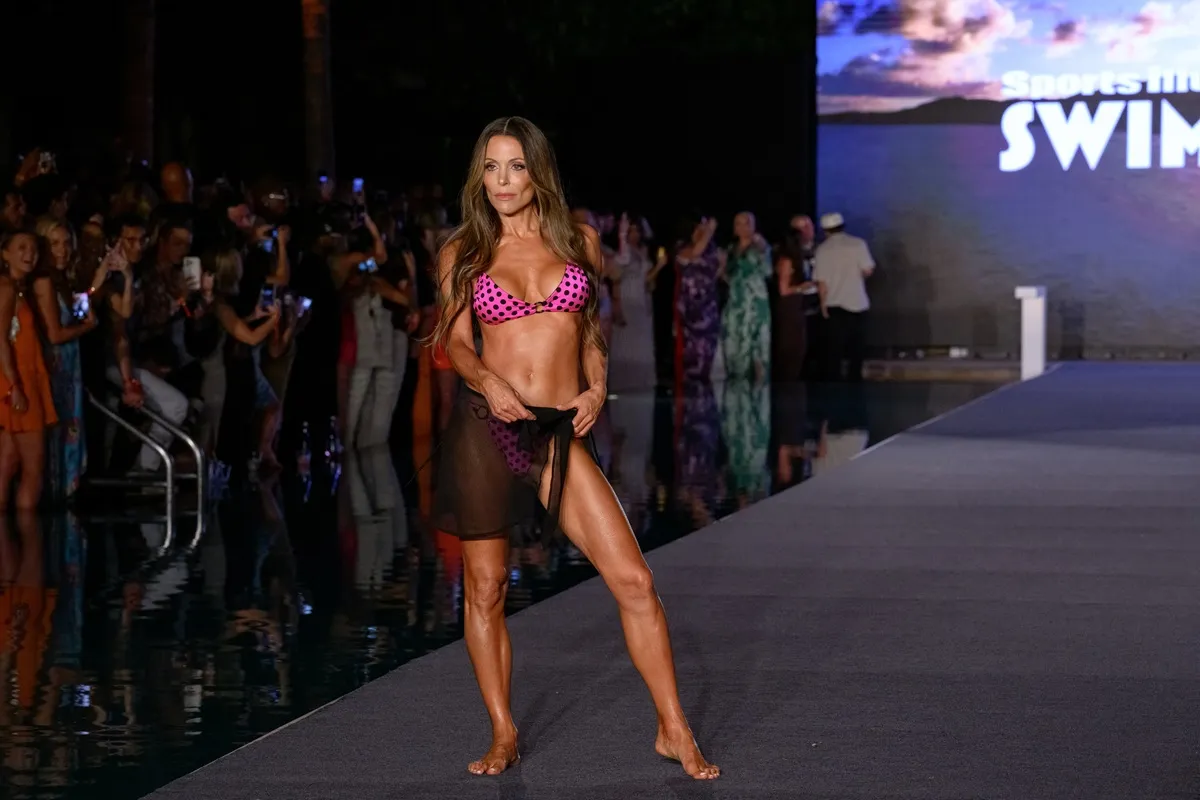
‘RHOA’: Kandi Burruss on Whether Cast Deals With Colorism as on ‘RHOP’
The Real Housewives of Atlanta stars are known for their verbal spats and throwing serious shade toward one another. While sometimes cast members have been called out for low blows, there haven’t been any accusations of racism or colorism as there has on RHOP. Longtime cast member Kandi Burruss says there’s a reason why those same conversations don’t apply to her franchise.

Colorism explained
The National Coalition of Christians and Jews defines colorism as “a practice of discrimination by which those with lighter skin are treated more favorably than those with darker skin. This practice is a product of racism in the United States, in that it upholds the white standards of beauty and benefits white people in the institutions of oppression (media, medical world, etc.).”
Colorism is embedded in racism. Dating back to slavery, lighter-skinned slaves were treated better than darker-skinned slaves and were granted “special privileges.” Some privileges included lighter-skinned slaves being welcomed in the main house by their slave masters, better job opportunities, and being fed better food – while the darker-skinned slaves were seemingly given harsher punishments and worked more difficult labor. Lighter-skinned slaves were often favored because they were products of rape from their slave masters and co.
Transitioning into 19th and 20th centuries, the “paper bag test” was often utilized in Black spaces and in the hiring of Black employees, and severely impacted hiring practices. Moreso, there’s a history of darker-skinned Black people being viewed as a threat, physically and metaphorically, and the images we see on screen impact such.
There have been discussions of colorism on the cast of ‘RHOP’
Candiace Dillard Bassett has been called the shade assassin of her franchise. She is continuously reprimanded for her verbal scoldings toward her co-stars. But the “Drive Back” singer says her lighter-skinned co-stars and other Bravolebrities do not have the same consequences. She’s used Ashley Darby as an example of a co-star who is not held on the same level for her messy ways.
In an interview with The Daily Beast, Dillard Bassett listed colorism as the reason why others are able to evade accountability for seemingly bad behavior. She explained:
When I first joined this cast and would get into whatever disagreement with my cast, my first inclination was not to go right to colorism. I didn’t want to believe that right away. But it just became so clear when the audience wants to vilify me. And let’s say someone like Ashley is responding or reacting in a very similar way. Somehow, when I do it, it’s aggressive. And when Ashley does it, it’s, you know…she’s praised for being messy. And I am maligned and banished to the basement. And I will be clear in saying that I believe that most of the colorism that we experience comes from an audience space. I don’t believe that my cast is purposely or willingly wielding any power against us.
Kandi Burruss says the ‘RHOA’ cast doesn’t deal with colorism
The discussion about colorism has extended beyond RHOP. With franchises starring other women of color, there have been conversations about whether they’ve had the same experiences.
Burruss said she doesn’t experience such while filming RHOA. She told The Shade Room:
Me and Todd had this conversation when we saw it on the blogs. I was like, ‘I guess there aren’t many light-skinned girls on Housewives of Atlanta. They got all of the green-eyed bandits in D.C., apparently. I thought that was funny because colorism is everywhere. But realistically, their show, it looks like it was only two dark-skinned girls up there[on the reunion]. I guess everyone else is light-skinned…light-skinned, light eyes, whatever you want to say. It’s a majority of light-skinned women on that cast, so I guess, that’s why they have to deal with that. We don’t have as many light-complexion Black women on our cast. It’s not on purpose. It’s just not that way, so we don’t have as much conversation about colorism.


